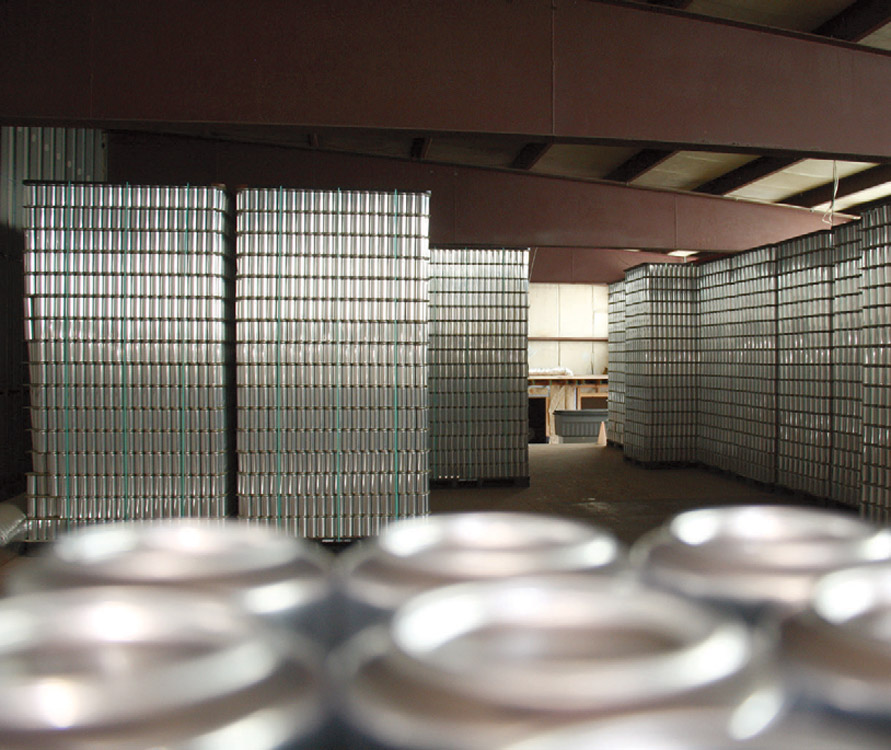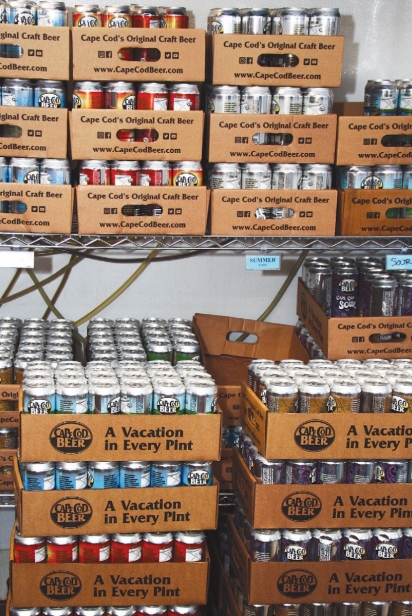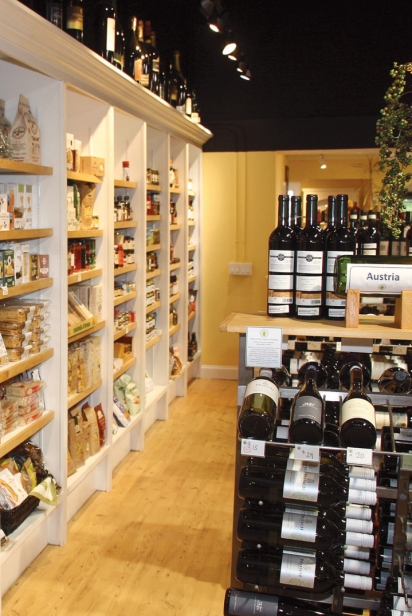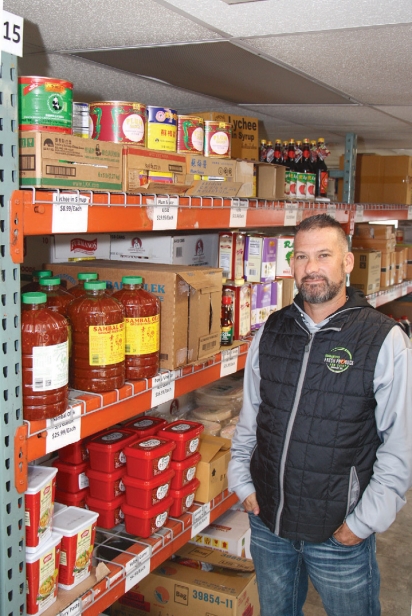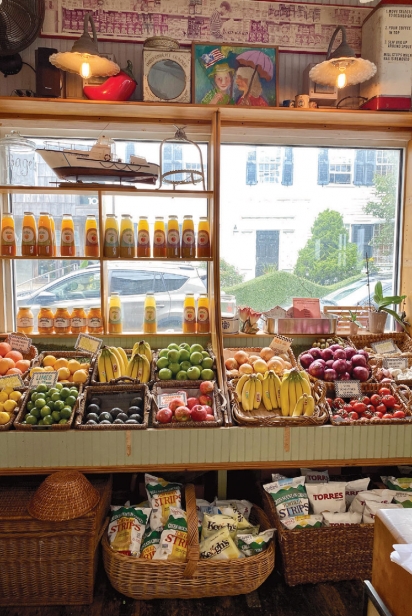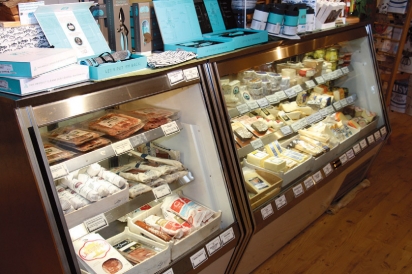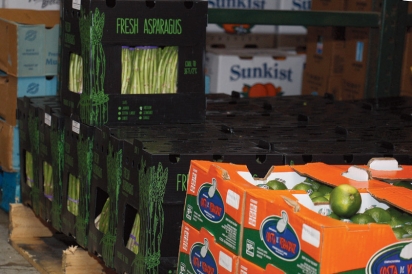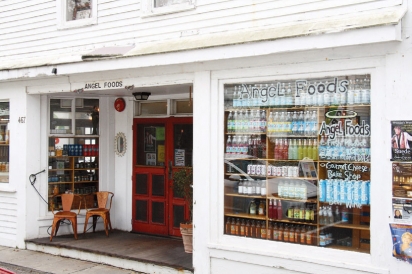Where Have All the Products Gone
Food Industry Professionals Address Supply Chain Woes with Creativity and Patience
“We want our customers to understand what’s going on, so they’re not surprised when they get here,” says Beth Marcus, co-owner of Cape Cod Beer in Hyannis with her husband, Todd. “Frequently, in our newsletters and on Facebook, etc., we talk about our supply chain issues.” Like earlier this year, when the couple could not get plastic cups for the taproom. They reached out to customers via email and social media, and posted signs at the brewery, imploring them to bring their own cups. And they did.
“Supply chain issues” is one of those COVID terms that has entered our lexicon, affecting even those of us who have never given much thought to where items we use every day come from or how they get to us. Labor shortages in the Cape’s restaurant and hospitality industry have been readily apparent since the start of the pandemic. Problems with the supply chain throughout the local food and beverage space have been less obvious due to the perseverance and ingenuity of industry professionals who have been keeping its effects as undetectable to customers as they possibly can. But, says Marcus, “It’s definitely getting worse. It’s not getting better. We’re seeing it across the board.”
When the 155,000 cans the couple ordered in March 2021 for July 1 delivery were held up until September 9, “We had to find another supplier, which is almost impossible,” Marcus says. Fortunately, the mobile canner they work with was able to help them find cans. The company cans roughly 12 to 14 varieties per year and has always ordered custom-printed cans for each one. That’s a lot of potential loss. To minimize the problem moving forward, when they ran out of printed cans earlier this year, the Marcuses ordered blank cans and asked their graphic designer to print labels for each variety.
Grain that the couple has been buying from the same distributor in upstate New York for 17 years used to arrive in four days. Now it takes 9 to 11 days. And international shipping problems have meant that some of the grain that comes from Germany and the UK has not arrived at all. The brewery has been able to continue making most of the beers because, Marcus explains, “My husband is a Boy Scout. We’re planners. In most cases we’ve been able to adapt and modify some of our recipes – not to the point where customers would notice.”
The brewery has had to put a temporary halt on some specialty beers. Marcus notes, “We’ve had our own resource issues.” Usually they have five people making beer. Currently they are down to three. Rather than maintaining the full variety, “Our priority was having beer when people walk through the door, beer for restaurants and liquor stores,” she says.
In 2020, when Massachusetts mandated that bars could only serve alcohol if they served food as well, Cape Cod Beer added a resident food truck, JP’s Twisted BBQ, live music and a steady stream of special events. The staff realized, “We’re pretty good at this,” Marcus says. “There’s a little bit of PTSD in there, but what the hell.”
Walking into Main Street Wine & Gourmet in Orleans, you would never know that things this year have been anything other than business as usual. Enticing displays of wines and tabletop items greet visitors at the entry. Just beyond, a cheese and charcuterie case is filled with choice selections. Shelves are stocked with specialty food items, and stretching back through the cavernous room are rows and rows of wines from all over the world as well as spirits and craft beers. But, admits co-owner Caitlin Gomes, who bought the 12-year-old business with her husband, Ryan, in 2018, “The supply chain issues have been really a struggle for us.”
From March through September 2020, Gomes says, anything that was coming from overseas, which is a significant portion of her business, was out of stock. “Flights couldn’t come. Cheese came by boat instead. There were huge delays.” As different industries shut down – usually temporarily – there were trickle-down effects, too. For a while small glass jars were unavailable. This affected the shop’s suppliers, from olive growers to pasta sauce makers.
On the wine side, Gomes explains there were enormous shortages of refrigerated containers coming across the ocean, leading to “incredible delays. [Her suppliers] were out of stock like we have never seen before. In my store, I don’t ever buy anything I haven’t tasted. This year it’s been a constant need to adapt, find new products to fill the spots because of how much has been out of stock.” Adding to the challenge, she explains, there is no reliability regarding when they can expect products to be back in stock.
But Gomes has been resourceful. With the store’s best-selling Sancerre unavailable for all of 2021, she had to find a replacement, in this case a different Sancerre. Sometimes, she says, comparable products cost a few dollars more than customers are used to paying, but they have adapted well. “This is a hands-on business. Customer service is the most important thing here. [Our customers] trust and rely on us.”
Historically, Gomes has taken at least one wine-related trip every year, and several more to food and tabletop shows to find products to sell. She has not been on a plane since before March 2020. Though she misses the travel, wine vendors bring wines to the store regularly, so she is still able to taste every wine before selling it. She says it is much more difficult to find unique food and table items when she can’t visit locations to seek them out. But she is managing.
The store has been open consistently, year-round, since the start of the pandemic. And the shelves have always been fully stocked. “If I can’t get something I’m going to fill it with something else,” Gomes says.
“If we’re out of an item I never want to disappoint a customer, so we get it wherever we have to get it,” says Adam Weiner of Guaranteed Fresh Produce in Hyannis, stipulating that he only uses reputable suppliers. “We were able to be nimble and adapt to the environment of COVID and make other arrangements pretty fast to find other products.” His company sells to restaurants, hotels, small retail outlets, assisted living and nursing homes, and schools throughout the Cape, much of Massachusetts and Rhode Island. “We made every delivery, seven days a week, but it was a struggle,” admits the owner of the family-run, 80-person company. “We’re still looking to hire.”
Weiner, who founded his business in 1995, says, “We have no trouble stocking produce and dairy,” which is their specialty. Manufactured products – dry goods and frozen and imported items – are tougher. “Labor shortages may cause an item to be a little scarce. As volume increased this past summer, certain manufacturers and food facilities didn’t have the work force to produce as much product as demand,” he says.
And even if the products are available, getting them where they need to go has been a major headache. “Trucking and freight have been disastrous,” Weiner declares simply. “Freight rates are through the roof “ domestically and internationally.
There has been a silver lining for Guaranteed Fresh Produce. “We found a little niche,” Weiner says. He explains that a lot of juice bars and other restaurants and cafes serving smoothies rely on frozen fruit from overseas that became unavailable. “As restaurants were asking for these frozen items it opened up a whole new channel of items for us to sell. There’s places out there to get it. You just have to think outside the box.”
“There’s a new normal,” Weiner says. “I can’t say it’s been a bed of roses. We had to adapt to certain things, take in products when we could.”
At the other end of the spectrum in terms of business size, in the East End of Provincetown, is Angel Foods, where owner Liz Lovati says the early days of COVID were “really, really challenging. Prices went up like crazy. You couldn’t get chicken, hamburger, as the meat packaging plants were hit with COVID. I make lots and lots of chicken salad and it was a challenge to keep my store stocked, my customers happy.”
The silver lining, she says, is that customers appreciated the intimate shopping experience. In the early days, she only allowed three people in her cozy store at a time – masked and gloved even before there was a mandate. What has become more difficult as the pandemic has dragged on is “the lack of delivery men and women. I’m not getting deliveries on time…if at all,” she says.
But Lovati considers herself lucky. In addition to the store, known for its gourmet and pantry items, prepared foods and catering, she owns Liz’s Cafe Anybody’s Bar at the opposite end of town. “I am able to get premier delivery,” she says, “but even that is hit or miss. We used to get deliveries four times a week. Now it’s three times a week if we’re lucky. Sometimes it’s only two.”
At Angel Foods, Lovati says it has been hard to stock the full range of international goods the shop usually carries. Items that have become as relatively commonplace as San Pellegrino water and Parma ham have been next to impossible to get. In the before times, she always displayed a generous variety of cheeses that customers might not be able to find elsewhere, and she hasn’t been able to do that. “But there are things worse than not having six different kinds of cheeses,” says the proprietor. “You just have to be inventive. I just buy what’s available and hope that people want it. I can’t get La Tur [cheese], but Brillat-Savarin is available. I’m knowledgeable enough that I can make substitutions.”
Things have been easier at the cafe. The only item Lovati has struggled to obtain is high-quality chicken tenders that are always a popular menu item. So the 30-year industry veteran makes them by hand. “I’ve been at this a long time,” she says. “I know how to make it work.”
“There’s a lot going on behind the scenes that you have no idea, that are causing stress on business owners and on their employees,” says Beth Marcus. “But we just keep rolling with it.”
Cape Cod Beer
1336 Phinney’s Lane, Hyannis
508-790-4200
capecodbeer.com
Main Street Wine and Gourmet
42 Main Street, Orleans
508-255-1112
mainstreetwineandgourmet.com
Guaranteed Fresh Produce
35 Iyannough Road, Hyannis
508-771-0904
gfproduceonline.com
Angel Foods
467 Commercial Street, Provincetown
508-487-6666
angelfoods.com
Liz’s Café Anybody’s Bar
31 Bradford Street, Provincetown
508-413-9131
lizscafeptown.com


